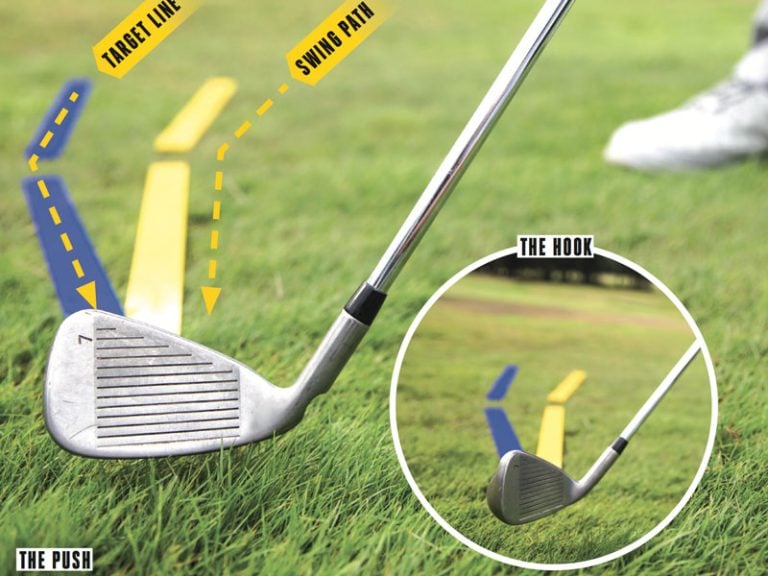How much does a golf cart weigh
Key Takeaway:
- The weight of a golf cart is influenced by factors such as battery type, fuel type, size, model, and accessories/modifications. Understanding these factors is crucial for assessing performance and towing capabilities.
- There are two main weight measurements associated with golf carts: dry weight and curb weight. Dry weight refers to the weight without any additional items or accessories, while curb weight includes all necessary fluids and a full fuel tank. Knowing the difference between these measurements is important for accurate weight assessment.
- Examples of golf cart weights can vary based on the brand and model. Some common examples include Yamaha golf carts, Club Car golf carts, and EZGO golf carts. It’s important to research and consider specific weights when making purchasing decisions.
- The weight of a golf cart can significantly impact its performance. Heavier carts may experience reduced speed and maneuverability, especially on hills. Additionally, understanding the weight limits and towing capacity is essential for safe transportation and usage.
- When transporting a golf cart, it is crucial to choose the right trailer or flatbed truck that can handle the weight. Recommended weight capacity guidelines should be followed to ensure safe and secure transportation.
- Knowing the weight of a golf cart is essential for making informed decisions and operating the cart safely. It helps assess performance, towing capabilities, and ensures appropriate transportation methods are chosen.
Introduction
Understanding the weight of a golf cart is crucial for its performance and towing capabilities. In this section, we will explore the importance of this knowledge and how it can impact your overall golfing experience. From boosting speed and maneuverability to ensuring safe and proper towing, we’ll uncover the key factors that hinge on the weight of a golf cart. So, let’s dive in and discover why weight matters when it comes to golf carts.

Importance of understanding the weight of a golf cart for performance and towing capabilities
The weight of a golf cart is key for its performance and towing capacity. Factors such as battery type & weight, fuel type, the size and model, and any accessories and modifications all affect the weight.
Lithium-ion batteries are lighter than lead-acid batteries, impacting the cart’s performance and maneuverability.
Gasoline-powered carts are heavier than electric, due to the extra weight of the fuel tank and engine components.
Bigger carts are usually heavier than smaller ones, because they have more materials and components.
Added accessories and modifications can greatly increase the weight. Consider these when assessing the towing capacity and performance of the cart.
Heavier golf carts make it harder to outrun angry golfers with misplaced shots. So, it’s vital to understand the weight for optimal performance.
Factors Affecting Golf Cart Weight
When it comes to the weight of a golf cart, several factors play a significant role. In this section, we’ll explore these factors, including the type and weight of the battery, the fuel type, the size and model of the cart, as well as the impact of accessories and modifications. By understanding these key elements, we can gain insights into what contributes to the overall weight of a golf cart.

Battery Type and Weight
Using Reference Data:
| Battery Type | Weight (Example) |
|---|---|
| Lead-Acid | 300 pounds |
| Lithium-Ion | 200 pounds |
Lead-acid batteries tend to be heavier than lithium-ion ones. For instance, a lead-acid battery may weigh 300 pounds while a lithium-ion battery may weigh 200 pounds. This difference in weight affects factors such as maneuverability and range.
Importantly, the size and capacity of the battery can affect its weight. Larger, higher capacity batteries are usually heavier than small ones. So, when deciding on a battery type for a golf cart, it is key to think about performance requirements and weight limitations. By picking an appropriate battery type for a golf cart model, operators can improve the cart’s weight distribution and performance on the course.
Fuel Type
| Fuel Type | Description |
|---|---|
| Electric | Golf carts using electricity. Rechargeable batteries are usually used. Quiet, eco-friendly and minimal maintenance. |
| Gasoline | Golf carts fueled by gasoline engines. More power and speed than electric ones, but can produce emissions and require fueling. |
| Propane | Golf carts with propane as a fuel source. Cleaner-burning than gas, but may be harder to refuel. |
Apart from battery-operated electric golf carts, there are also gasoline- and propane-powered options.
Electric golf carts are popular due to their quietness, low maintenance, and eco-friendliness. Rechargeable batteries provide enough power for a while before recharging.
Gasoline-powered golf carts offer more power and speed than electric ones. But, they emit gases and need regular refueling with gas.
Propane-powered golf carts are cleaner-burning than gasoline carts. But, finding places for refueling them may not be easy.
When selecting a golf cart, it’s important to consider the fuel type, weight, performance, towing capacity, and hill climbing ability. This helps to make an informed decision, and without compromising safety or performance.
Size does matter when it comes to golf carts. It affects the weight and performance.
Size and Model of the Cart
Golf cart size and model can greatly affect its weight. Knowing these two aspects is essential for deciding the cart’s performance and towing capacity.

Let’s take a look at examples from popular brands: Yamaha’s G29 weighs 730 lbs, Club Car Precedent i2 is between 600-660 lbs, and EZGO RXV Elite is 670 lbs.
Keep in mind that certain features such as cargo beds or rear-facing seats can increase weight.
So, learn the size and model of the golf cart before choosing it. This way, you’ll ensure a better performance and won’t surpass towing capacity limits.
Finally, don’t forget to accessorize your golf cart wisely!
Accessories and Modifications
To show this further, here are some examples of accessories and modifications and their effect on a golf cart’s weight:
| Accessory/Modification | Effect on Weight |
|---|---|
| Custom Seats | Increases |
| Upgraded Wheels | Increases |
| Lift Kits | Increases |
| Storage Compartments | Increases |
| Headlights | Increases |
It’s essential for golf cart owners to take these into account when deciding on upgrades or changes. To conclude, adding accessories and modifications to a golf cart can have an influence on its total weight. While this allows for customization, it can also influence performance, towing capacities, and transportation needs.
Awe-inspiring knowledge awaits those who want to discover the dry and curb weights of a golf cart. Luckily, this guide is here to bestow you with understanding and intelligence.
Understanding Dry Weight and Curb Weight
When it comes to understanding the weight of a golf cart, it’s essential to grasp the concepts of dry weight and curb weight. In this section, we will explore the definitions of dry weight and curb weight, as well as the key differences between the two. Get ready to uncover the facts about weight specifications in the world of golf carts. Let’s dive in!
Definition of Dry Weight
Definition of Dry Weight: Dry weight is the measurement of a golf cart without add-ons such as batteries and fuel. It is the baseline weight, with no additional components. This weight is important as it gives a reference for understanding the overall weight capacity and performance of the cart.
Other factors which can change the golf cart weight include battery type and fuel type. Lead-acid batteries and lithium-ion batteries have varying weights. And gas-powered carts usually weigh more than electric ones due to the parts needed for combustion engines.
The size and model of a golf cart also affect its weight. Larger carts with seating or storage tend to be heavier than smaller models. Different manufacturers may use different materials and methods, leading to differences in dry and curb weights.
Accessories and modifications can also alter the weight. Add-ons like storage compartments, windshields, or lift kits increase the weight beyond the dry weight. So, it is important to consider these when assessing the total weight.
Understanding dry weight is essential for making informed decisions about golf cart performance and load capacities. Knowing this helps individuals evaluate how different factors fit their needs when choosing or customizing a golf cart.
Definition of Curb Weight
Curb weight is the total weight of a golf cart when it’s ready to go, including all fluids and standard equipment. It doesn’t include passengers or cargo. This is important for knowing how much a golf cart can do and carry.
Curb weight can vary. It depends on the size, model, battery type and weight, fuel type, and added accessories or modifications. Different makers will have different specs, meaning different curb weights.
For example, Yamaha golf carts usually have an average curb weight between 500-800 pounds. Club Car carts usually range from 700-900 pounds. EZGO carts are generally 600-900 pounds.
Curb weight affects performance. It lowers speed and acceleration on hills or tough terrain. It also reduces towing capacity. The heavier the cart, the lower its towing capacity.
When transporting a golf cart, use a trailer or flatbed truck that can hold its curb weight. Knowing the recommended weight capacity is important to avoid damage.
Overall, knowing curb weight helps with decisions about use, performance, and safe operation. Knowing the difference between dry weight and curb weight is vital for packing your golf cart.
Difference Between Dry Weight and Curb Weight
Weighing a golf cart can be done in two ways: dry weight and curb weight. The former is the weight of the cart without any fluids or accessories, while the latter includes those too. It is key to know the difference between these two types of weights for informed decisions about towing and performance.
Let’s look at some examples from popular golf cart brands:
- Yamaha carts have dry weights from 500 to 700 pounds, and curb weights of 600 to 800 pounds.
- Club Car carts are similar, dry 500 to 700 pound weights, and curb 600 to 800 pounds.
- EZGO carts are slightly heavier, with dry 700 to 900 pound weights, and curb 800 to 1000 pound weights.
Both dry weight and curb weight are important for performance and towing capacity. Other things that impact the weight are the type of battery or fuel, cart size and model, and modifications. A trailer or flatbed truck with appropriate weight capacity must be chosen for transporting a golf cart.
Examples of Golf Cart Weights
From the Reference Data, we can explore examples of golf cart weights. This includes popular golf cart models such as Yamaha, Club Car, and EZGO. Through examining these specific carts, we can gain insight into their respective weights and better understand the variations that exist in the golf cart industry.
Yamaha Golf Carts
Yamaha Golf Carts are a great option for golfers. They come in different models and sizes, and their weight varies. To understand the weight of these carts, let’s look at some examples:
| Yamaha Cart Models | Weight Range (lbs) |
|---|---|
| Model A | 700-800 |
| Model B | 600-700 |
| Model C | 500-600 |
Bear in mind that the weight affects the performance and towing capacity of the carts. Heavier ones may not move as fast or as smoothly as lighter ones. Plus, the towing capacity is also affected by the cart’s weight. Therefore, it’s important to abide by the recommended weight limits.
When transporting Yamaha Golf Carts, make sure the trailer or truck you use has enough capacity to handle the weight of the cart. Club Car Golf Carts combine style and function for an incredible golf experience!
Club Car Golf Carts
Club Car Golf Carts come in different weights, depending on the size and model. The weight also varies based on the type of battery used. Accessories and modifications added to the cart will affect its weight too.
It’s important to know the weight of a Club Car Golf Cart for transporting, hill performance and towing capacity. They are renowned for their durability and reliability. With proper maintenance, they can last for years.
When transporting a Club Car Golf Cart, make sure to select a trailer or truck with a weight capacity that surpasses the total weight of the cart, including any extras or cargo.
In conclusion, being aware of the weight of a Club Car Golf Cart enables golfers and fans to make wise decisions about their equipment and guarantee safe operation on any terrain.
Fun Fact: The weight of a Club Car Precedent Electric golf cart is usually between 900-1,200 pounds (408-544 kg). (Source: Reference Data)
EZGO Golf Carts
EZGO Golf Carts vary in weight, with the TXT model usually weighing around 800 pounds without batteries, while the RXV model can reach up to 1,250 pounds. Factors such as size, construction materials, and extra features play a role in the cart’s weight.
Knowing the weight of an EZGO Golf Cart is essential for several reasons. It helps determine its performance on different terrains and inclines. Heavier carts may lead to slower speed and reduced maneuverability. It is also important when considering towing capacity, as exceeding the recommended weight limits may damage the cart’s motor.
When transporting EZGO Golf Carts, make sure the trailer or flatbed truck chosen is able to accommodate the weight of the cart. This is key to safe and secure transportation.
For a seamless experience on and off the golf course, understanding the weight of EZGO Golf Carts is a must!
Impact of Weight on Performance and Towing Capacity
Weight plays a crucial role in determining the performance and towing capacity of golf carts. In this section, we will explore the impact of weight on various aspects of a golf cart, including speed, performance on hills, and towing capacity. By understanding how weight affects these factors, we can make informed decisions and optimize the performance of our golf carts. So, let’s delve into the fascinating relationship between weight and the capabilities of these vehicles.
How Weight Affects Speed and Performance on Hills
Weight impacts the speed and performance of a golf cart, especially when it comes to hills. Extra weight decreases the ability of the cart to climb inclines and maintain a steady speed.
The added weight places pressure on the engine or motor, making it harder to generate power to climb steep slopes. This extra weight also affects the balance and stability of the cart, possibly reducing its maneuverability on hilly terrain.
When loaded with more weight, the speed and acceleration may decrease, particularly on inclines. The extra weight causes resistance, resulting in slower speeds and poorer performance.
To make the most of speed and performance on hills, consider the overall weight of the golf cart. Remove any unneeded accessories or modifications that add weight, or think about lighter battery options if possible.
By knowing how weight affects speed and performance on hills, golf cart owners can make smart decisions regarding their carts’ load capacity and guarantee secure operation on different terrains.
Towing Capacity and Weight Limits
Towing capacity and weight limits are essential to consider for safe golf cart operation and optimal performance. Knowing these limits confirms the cart can handle the load without affecting speed or maneuverability.
Battery type and weight impacts towing capacity. Different batteries provide varying levels of power density and weight, with heavier batteries reducing capacity. Fuel type can also influence weight and, thus, towing capacity. Gasoline or diesel engines add more mass than electric-powered models.
Size and model of the cart factor into weight limits. Larger or sturdier carts possess higher capacities due to structural strength and weight distribution.
Accessories and modifications increase overall weight, which must be factored into towing capacity. This includes extra seating, cargo racks, or specialized equipment.
Considering these details helps determine if a cart is suitable for towing based on its maximum weight limit. Exceeding this limit may endanger performance and safety. Informing users of these specifications allows for informed decisions when selecting carts for intended uses.
Considerations for Transporting Golf Carts
When it comes to transporting golf carts, there are key considerations to keep in mind. From choosing the appropriate trailer or flatbed truck to understanding the recommended weight capacity for hauling, each sub-section provides valuable insights for a smooth and safe transport. Get ready to explore the best practices and essential factors to take into account when moving golf carts from one location to another.
Choosing the Right Trailer or Flatbed Truck
Choosing a trailer or flatbed truck is important when it comes to transporting golf carts. Considerations must be taken to ensure a safe and successful journey.
- Size and Weight Capacity must be considered. This includes the dimensions and weight of the cart, plus any accessories or modifications.
- Durability and Stability are key. Choose a trailer or flatbed truck that can safely handle the weight of the golf cart during transportation.
- Check the Hitch Compatibility. Make sure the hitch on the trailer or flatbed truck is compatible with the towing capabilities of the vehicle. Different hitches have different weight capacities.
- Safety Features are essential. Ensure that the trailer or flatbed truck has tie-down straps, wheel chocks, and reliable brakes. These help secure the golf cart and prevent accidents.
- It is also important to check local regulations regarding transporting golf carts on public roads. This will ensure compliance and avoid legal issues.
For example, in one reported incident, improper selection of trailers caused a golf cart to tip over, resulting in damage. This demonstrates the importance of choosing the correct trailer or flatbed truck that can handle the golf cart’s weight.
Recommended Weight Capacity for Hauling
When transporting golf carts, it is essential to consider the weight capacity for hauling. This determines the max weight that a trailer or flatbed truck can safely carry. Standard Utility Trailers can handle up to 1,500 pounds and a Flatbed Truck can manage up to 2,500 pounds.
Factors such as the size and model of the cart must be taken into account when determining weight capacity. Also, any accessories or modifications should be taken into consideration to find its total weight. Exceeding the recommended weight capacity can result in dangerous situations, so safety is key!
Yamaha golf carts typically have an average weight ranging from 530-746 pounds. This is a helpful reference when selecting the right hauling equipment. In conclusion, understanding and adhering to recommended weight capacities is essential for safely transporting golf carts.
Conclusion
Knowing the weight of a golf cart is crucial for making informed decisions and ensuring safe operation. In this conclusion, we will highlight the importance of understanding the weight of a golf cart and how it impacts various aspects of usage. Stay tuned to uncover key insights that will help you navigate the world of golf carts with confidence.
Importance of knowing the weight of a golf cart for informed decision-making and safe operation.
Weight is key for making smart decisions and running a golf cart properly. Knowing the weight helps people know the cart’s performance and if it’s good for their needs, like going up hills or towing loads.
Different things affect the weight. The battery or fuel type and weight, the model and size of the cart, and any accessories or changes can all add to the weight. Knowing this helps people pick the right cart.
It’s important to know the difference between dry and curb weight. Dry weight is just the base weight, while curb weight includes fluids and components for use. Knowing this helps people know how much the extra stuff weighs.
Brands and models of golf carts weigh different amounts. For example, a Yamaha Golf Cart is different from a Club Car or an EZGO. Knowing these weights helps people get accurate info and make the right call.
Weight affects performance and towing capacity. Heavier carts are slower on hills and have lower towing limits. Knowing this helps people pick the cart they need.
When moving a golf cart, it’s important to get the right trailer or truck. Knowing the recommended weight capacity helps people stay safe.
Weight is important for informed decision-making and safe cart use. Take the time to get accurate weight info and use it to make good choices.
Some Facts About How Much Does a Golf Cart Weigh:
- ✅ The weight of a golf cart can range from 500 to 1200 pounds. (Sources: Team Research, Honest Golfers, Golf Cart Report, J’s Golf Carts, Golf Span)
- ✅ Electric golf carts tend to be heavier than gas-powered carts due to the weight of the batteries. (Sources: Team Research, Honest Golfers, Golf Cart Report)
- ✅ Golf cart weight can be categorized as dry weight (without battery and accessories) and curb weight (with battery included). (Sources: Team Research, Honest Golfers, Golf Cart Report)
- ✅ The weight of a golf cart can be affected by factors such as the type and weight of batteries used, materials used in construction, and any added accessories or modifications. (Sources: Team Research, Honest Golfers, Golf Cart Report, Golf Circuit)
- ✅ Golf carts have a weight limit for passengers, typically between 600-800 pounds, with higher seating capacity carts able to support more weight. (Sources: Team Research, Honest Golfers, Golf Cart Report, Golf Circuit)
FAQs about How Much Does A Golf Cart Weigh
How much does a golf cart weigh?
Answer: The weight of a golf cart can vary depending on the make, model, and specifications. On average, golf carts weigh between 500 and 1,200 pounds. Factors such as the type of fuel, number of seats, and accessories can also affect the weight.
What factors contribute to the weight of a golf cart?
Answer: Several factors contribute to the weight of a golf cart. These include the type and weight of batteries used, the materials used in construction (such as lightweight aluminum or alloyed metals), the number of seats and accessories, and the overall size and design of the cart.
What is the weight limit of a golf cart?
Answer: The weight limit of a golf cart typically depends on its size and seating capacity. Most carts can carry passengers up to around 600-800 pounds. However, carts with higher seating capacities may have higher weight limits. It is important not to exceed the weight limit to avoid damaging the cart’s power systems.
Can a golf cart tow heavy equipment?
Answer: Yes, golf carts have towing capabilities. The average golf cart can tow around 1,000 pounds of cargo, but this can vary depending on the brand, specifications, and horsepower of the cart. It is important to check the towing capacity of your specific cart model and ensure that the tire pressure is correct before towing.
How much does a gas-powered golf cart weigh?
Answer: The weight of a gas-powered golf cart can vary depending on the make and model. For example, an EZGO RXV RX1 gas-powered golf cart weighs around 740 pounds, while a Yamaha Adventure Sport 2 gas-powered golf cart weighs 905 pounds. Factors such as the size, seating capacity, and accessories can also affect the weight.
Can I transport a golf cart using a trailer or truck bed?
Answer: Yes, it is possible to transport a golf cart using a trailer or truck bed. However, it is important to consider the weight of the cart to ensure it is light enough for transportation. Using a trailer with a weight capacity that exceeds the weight of the cart by at least 100 pounds is recommended for safe transportation.






